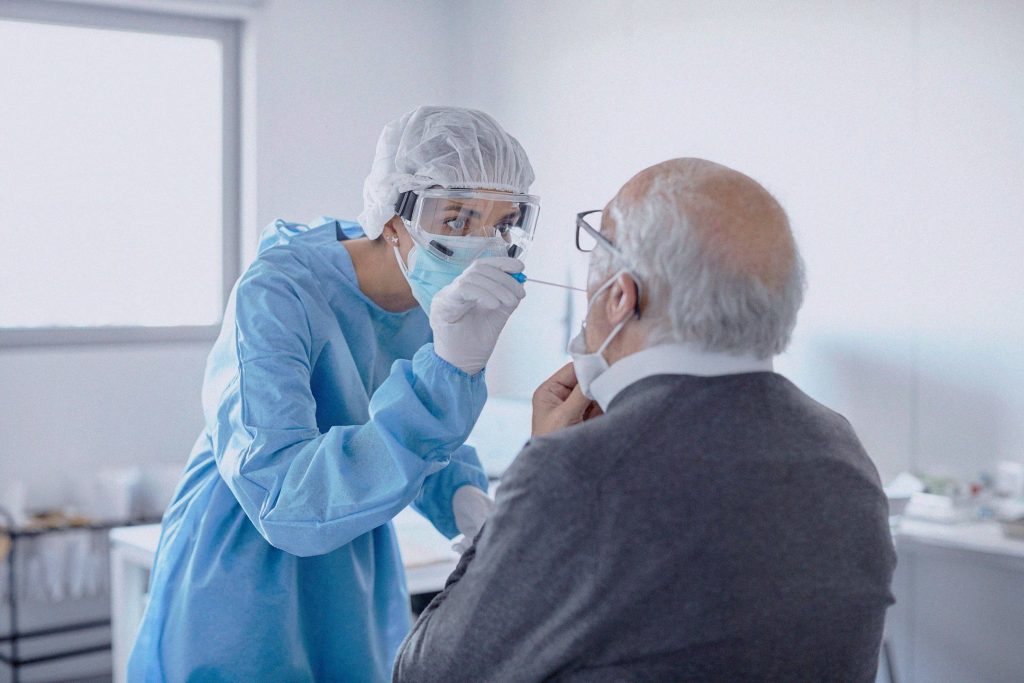
Rising to Global Challenges
Seegene is leading the fight against Covid-19 and emerging variants by bringing synergy between biotechnology and information technology.
The emergence of Covid-19 variants is alarming global health authorities at a time when most would rather focus on the rollout of vaccines and the end of lockdown measures. Scientists around the world are racing against the clock to understand how these variants emerge, the types of symptoms that manifest in patients and whether pre-existing vaccines can contain them.
While a few hundred million people have already received at least one dose of the currently available Covid-19 vaccines, new virus variants remain a major health risk. Although coronavirus strains are not necessarily deadlier, they “tend to spread faster, they’re more transmissible or more infectious,” according to the World Health Organization Chief Scientist Dr. Soumya Swaminathan.
Seegene, a global biotech company specialized in molecular diagnostics, has unveiled a new Covid-19 variant test in the face of these emerging and evolving threats. Molecular diagnostics, a technology that has gained recognition during the Covid-19 pandemic, amplify target genes and detect the presence of genetic material associated with a specific health condition or disease.
According to Seegene, the latest Covid-19 variant test – developed using its unique multiplex molecular diagnostics technology – can detect up to four different Covid-19 genes and five variant strains simultaneously, including those assessed to be more contagious. This is done simultaneously with a single test in less than 2.5 hours, which enables mass-scale testing to control the pandemic.
“We believe finding the exact cause of symptoms is the first and the most important step in finding the right treatment and preventing the spread of the virus,” says Dr. Jong-Yoon Chun, CEO, Seegene.
We believe that our new variant tests can help governments and health organizations throughout the world to fight against threatening variants and help people to get back to their daily lives.
Dr. Jong-Yoon Chun, CEO, Seegene
Quick to Adapt
The most recognized lineages of Covid-19 variants such as those that have emerged in South Africa, the United Kingdom, Brazil, Japan, Nigeria, and Denmark will need to be taken into account by vaccine manufacturers and national health authorities in their battle against Covid-19. This is where innovative diagnostic technologies like Seegene’s latest Covid-19 variant test stand to benefit: it can significantly drive the efficiency of the testing process for original and variant strains of the coronavirus worldwide.

“Most companies would have to carry out multiple tests to detect multiple target genes of the virus, which can be time-consuming and costly. However, our multiplex syndromic tests can detect multiple targets with a single test without compromising speed and accuracy. Not only that, screening the variants would normally take another round of testing for other companies. With Seegene’s variant test, we can screen the five most notable lineages of variants along with Covid-19 wild type in a single round of testing. This is crucial for governments and health authorities to control the spread of the virus during the pandemic,” adds Dr. Chun.

Tech to the Rescue
Seegene’s development of its Covid-19 variant test stems from its pre-pandemic endeavors: combining its suite of proprietary high multiplex technologies and deep knowledge of molecular diagnostics with Artificial Intelligence (AI) and data science.

Seegene has established an auto-surveillance in silico system, backed by big data, to monitor and analyze reported cases of Covid-19 and its variants globally. “By adopting information technology to our accumulated know-how and experience in biotechnology, we can closely monitor the transformation of coronavirus strains and its most documented variant lineages and respond rapidly,” continues Dr. Chun.
The rapid development of the test was also made possible by an automated reagent development system (SGDDS). The company says it can bypass 16 steps and 895 decision-making parameters with AI. Whereas it previously may have taken a team of highly skilled researchers more than six months to a year to develop a reagent—the substance that triggers a chemical reaction in a molecular diagnostic test – that timeframe has been reduced to a few weeks thanks to automation.
“We are applying our automated development system not only in our South Korea headquarters but also in our subsidiaries to develop local-specific tests,” says Dr. Chun.
AI is an indispensable part of what we are trying to do at Seegene to make molecular diagnostics more accessible to people’s daily lives,
Dr. Jong-Yoon Chun, CEO, Seegene
A Global Fight for A Safer Future
Beyond Covid-19, molecular diagnostics can be used to prevent or contain future pandemics by accurately and rapidly diagnosing other outbreaks of infectious diseases and to diagnose all types of illnesses.
Seegene currently has over 150 syndromic molecular diagnostic test products that can be applied to various fields of infectious diseases, including respiratory, gastrointestinal, and sexually transmitted diseases, in addition to drug resistance, cancer, and hereditary disease.

Seegene aims to broaden its product portfolio: by making its digitalized development system accessible to researchers worldwide, and developing a diagnostic kit for diseases, not just for humans but also for other organisms. With molecular diagnostics, patients will be able to get early diagnosis and receive appropriate treatment expeditiously.
“Our system and technology can also be applied to non-humans, including animals, plants, and any living organisms composed with genetic materials,” says Dr. Chun. “It can be used to improve animal health, food safety, agriculture, and environment protection.”
With the ultimate goal of building a future free of diseases, Seegene envisions a world where molecular diagnostics becomes a part of our daily lives.
Dr. Jong-Yoon Chun, CEO, Seegene






